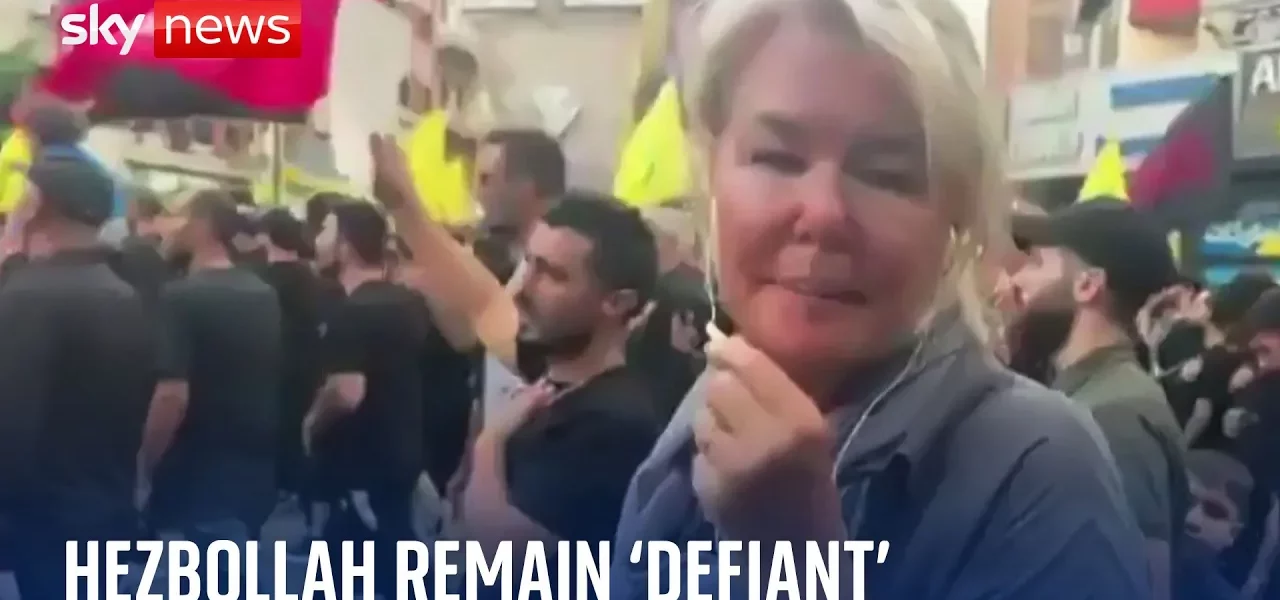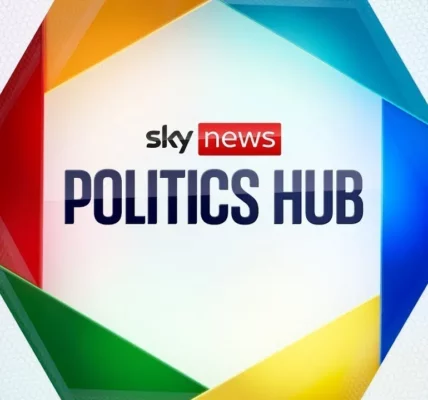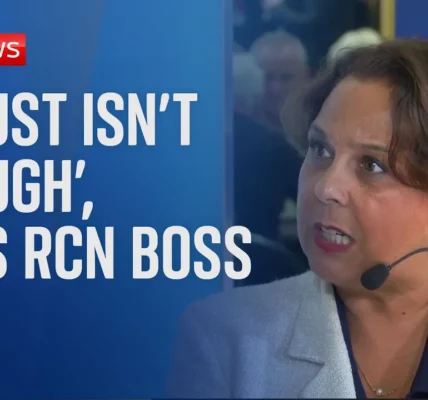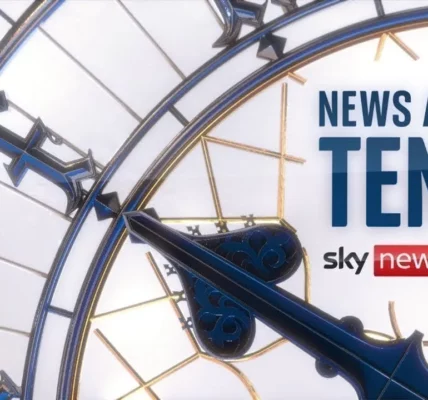Hezbollah’s Ongoing Battle: Insights from Beirut

This article delves into the recent events surrounding Hezbollah’s leadership, the ongoing conflict with Israel, and the socio-political implications of these developments in Lebanon. Special correspondent Alex Crawford reports from Beirut on the latest funeral of a key Hezbollah commander, highlighting the increasing tensions and the public’s response.
Introduction
The political landscape in Lebanon has become increasingly fraught as Hezbollah engages in what they describe as an “open-ended Battle of Reckoning” with Israel. Following the recent death of a prominent commander, the atmosphere in Beirut has been charged with emotion and defiance. The funeral, which saw a significant turnout of supporters and fighters, serves as a poignant reminder of the ongoing conflict and its broader implications for the region. This article will explore the aftermath of the commander’s death, Hezbollah’s response, and the sentiments of the Lebanese people during this tumultuous time.
The Funeral of a Hezbollah Leader
In the heart of Beirut, the funeral of a key Hezbollah commander drew thousands of supporters, illustrating the group’s enduring influence despite recent setbacks. The event was marked by notable speeches and displays of solidarity among Hezbollah members and sympathizers.
Attendance and Emotional Atmosphere
The turnout was overwhelming, with a mix of Hezbollah fighters, family members of deceased soldiers, and loyal supporters present. The atmosphere was charged with grief but also defiance, as attendees expressed their solidarity with the organization.
Hezbollah’s Leadership Response
During the funeral, Hezbollah’s second-in-command delivered a powerful eulogy, emphasizing the group’s commitment to continue fighting against Israel. This speech was notable not just for its content, but also because of the speaker’s rare public appearance, signaling a bold stance amid ongoing threats.
Escalation of Conflict with Israel
Recent military engagements have escalated tensions between Hezbollah and Israel, with both sides suffering significant casualties and losses. The Israeli forces have claimed substantial victories, targeting Hezbollah’s military command networks.
Recent Attacks and Casualties
In the last week, Israel has conducted operations that resulted in the deaths of numerous Hezbollah commanders, including 16 elite fighters. These attacks have not only diminished Hezbollah’s military capabilities but have also had tragic consequences for civilians in the region.
Public Sentiment and Reactions
The Lebanese government has condemned these attacks, labeling them as war crimes due to the high civilian toll. This sentiment reflects a growing anger among the populace, leading to a shift in public opinion regarding Hezbollah’s involvement in the conflict.
Collective Anger and Unity
- Increased public gatherings in support of Hezbollah
- Sympathy for Palestinian causes amidst the conflict
- Resentment towards Israeli military actions
This collective anger has galvanized support for Hezbollah, even among those who previously opposed the group’s military strategies. The dynamics of public opinion in Lebanon are shifting, creating a complex and volatile atmosphere.
The Broader Implications for Lebanon
The ongoing conflict poses significant risks for Lebanon, a country already on the brink of economic collapse. The repercussions of continued military engagements threaten to destabilize the fragile socio-economic fabric of the nation.
Economic Impact of the Conflict
With the Lebanese economy struggling, the escalation of conflict has exacerbated existing issues, leading to increased displacement and insecurity.
Public Safety Concerns
- Increased military presence in urban areas
- Displacement of civilians from conflict zones
- Fear of further Israeli strikes on populated areas
The risks to public safety have led to widespread anxiety among the population, with many fearing for their safety regardless of their political affiliations.
Conclusion
The recent events in Beirut illustrate the deepening complexities of the conflict between Hezbollah and Israel, as well as the shifting sentiments within Lebanon. The funeral of the Hezbollah commander has not only reaffirmed the group’s resolve but also highlighted the challenges facing the Lebanese people amid growing tensions. As the situation continues to unfold, it is essential for observers to understand the implications of this conflict on regional stability and the lives of ordinary citizens. For more insights into the Middle East conflict, visit our related articles on the website.
“`




